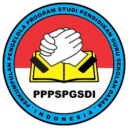The Strategy of Driving School Principals as Transformational Leaders in Improving Teacher Professionalism and the Quality of Education in Elementary Schools
DOI:
https://doi.org/10.35568/naturalistic.v9i1.4771Keywords:
driving school principal, transformational, professionalism, quality of educationAbstract
This research aims to describe the results of a literature review regarding the strategies of driving school principals as transformational leaders to improve teacher professionalism and the quality of education in elementary schools (SD). This research uses a Narrative Literature Review (NLR) approach with stages: identification of data sources, data selection and analysis process, synthesis and interpretation of findings. The NLR results show that there are three main strategies for driving school principals as transformational leaders in an effort to improve teacher professionalism and the quality of education. The three strategies are, namely, developing programs to increase teacher professionalism in a targeted manner, encouraging a collaborative culture and continuous learning, and providing ongoing encouragement and guidance. These strategies have specificities in terms of programs, which include the approach taken, practical activities, and monitoring and evaluation activities. These strategies encourage increased teacher professionalism and the quality of education in elementary schools. This increase will have an impact on improving the quality of learning and the quality of primary school education outcomes.
Downloads
References
Amzat, IH, Yanti, PG, & Suswandari, S. (2022). Estimating the Effect of Principal Instructional and Distributed Leadership on Professional Development of Teachers in Jakarta, Indonesia. SAGE Open , 12 (3). https://doi.org/10.1177/21582440221109585
Ancho, IV, & Arrieta, GS (2021). Filipino teacher professional development in the new normal. Education and Self Development , 16 (3), 25–43. https://doi.org/10.26907/esd.16.3.04
Aryani, RM, & Haryadi, R. (2023). Principals' Implementation of Collaborative Leadership To Improve Learning Quality. EduPhysics: Journal of Physics Education , 8 (1), 06–15. https://doi.org/10.59052/eduphysics.v8i1.24602
Azrial Rizky Al Ubaid's. (2022). Transformational Leadership of School Principals in Learning in Thailand. Journal of Educational Management Inspiration , 10 (4), 745–757.
Balyer, A., Karatas, H., & Alci, B. (2015). School Principals' Roles in Establishing Collaborative Professional Learning Communities at Schools. Procedia - Social and Behavioral Sciences , 197 (February), 1340–1347. https://doi.org/10.1016/j.sbspro.2015.07.387
Baumeister, R.F., & Leary, M.R. (1997). Writing narrative literature reviews. Review of General Psychology , 1 (3), 311–320. https://doi.org/10.1037/1089-2680.1.3.311
Brick, K., Cooper, J.L., Mason, L., Faeflen, S., Monmia, J., & Dubinsky, J.M. (2021). Tiered Neuroscience and Mental Health Professional Development in Liberia Improves Teacher Self-Efficacy, Self-Responsibility, and Motivation. Frontiers in Human Neuroscience , 15 (May). https://doi.org/10.3389/fnhum.2021.664730
Chang, C.-H., Teng, P., Tan, A.L., Joiko, S., Chan, Y.W., & Poh, M.S. (2014). Uncovering Singapore Teachers' Motivation to Participate in Professional Development Activities. Information Literacy and Computer Education Journal , 5 (1), 1460–1466. https://doi.org/10.20533/licej.2040.2589.2014.0195
Efendi, F., Sunaryo, H., & Harijanto, D. (2023). The Effectiveness of School Principals' Transformational Leadership through Work Commitment on the Performance of Independent Learning Teachers. Journal of Educational Management Accountability , 11 (2), 19–32. https://doi.org/10.21831/jamp.v11i2.60605
Fessehatsion, P.W. (2017). School Principal's Role in Facilitating Change in Teaching-Learning Process: Teachers' Attitude. A Case Study on Five Junior Schools in Asmara, Eritrea. Journal of Education and Practice , 8 (6), 134–142. www.iiste.org
Habibi, B., & Maya Hapsari, I. (2023). Transformational Leadership of School Principals in Increasing Teacher Professionalism. COMSERVA Indonesian Journal of Community Services and Development , 2 (10), 2175–2185. https://doi.org/10.59141/comserva.v2i10.630
Irawati, E. (2021). The Role of Principal Leadership and Teacher Professionalism in Improving the Quality of Education in Schools. Proceedings: Islamic University of Kalimantan , 1 (1), 269–279. https://ojs.uniska-bjm.ac.id/index.php/PIUOK/article/view/4726
Jeong, H., & Hmelo-Silver, C.E. (2016). Seven Affordances of Computer-Supported Collaborative Learning: How to Support Collaborative Learning? How Can Technologies Help? Educational Psychologist , 51 (2), 247–265. https://doi.org/10.1080/00461520.2016.1158654
Kho, SH, Saeed, KM, & Mohamed, AR (2019). Instructional coaching as a tool for professional development: Coaches' roles and considerations. Instructional Coaching as a Tool for Professional Development: Coaches' Roles and Considerations , 24 (5). https://doi.org/10.46743/2160-3715/2019.3774
Laliana, & Hermawan, A. (2020). Transformational Leadership of School Principals in Improving the Quality of Education at SDN 2 Bungai Jaya, Basarang District, Kapuas Regency. Administraus: Journal of Administration and Management , 4 (2), 4.
Downloads
Published
How to Cite
Issue
Section
License
Copyright (c) 2024 Naturalistic: Jurnal Kajian dan Penelitian Pendidikan dan Pembelajaran

This work is licensed under a Creative Commons Attribution-NonCommercial-NoDerivatives 4.0 International License.
Copyright of Journal Naturalistic : Jurnal Kajian Penelitian Pendidikan dan Pembelajaran (e-ISSN:2548-8589, p-ISSN:2528-2921).
Open Access Policy
This journal provides immediate open access to its content on the principle that making research freely available to the public supports a greater global exchange of knowledge.
This journal is open access journal which means that all content is freely available without charge to users or / institution. Users are allowed to read, download, copy, distribute, print, search, or link to full text articles in this journal without asking prior permission from the publisher or author. This is in accordance with Budapest Open Access Initiative.






